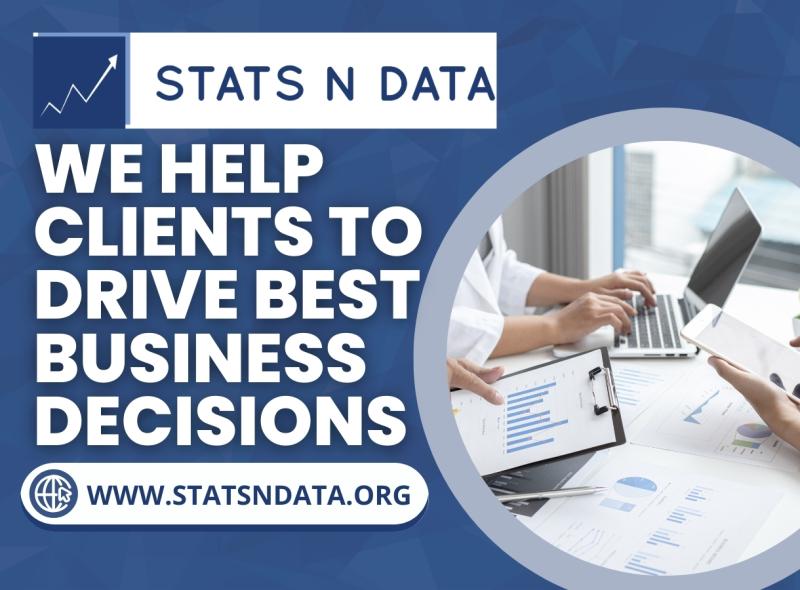Press release
AI Sales Assistant Software Market at 23.16% CAGR with Key Trends and Insights Featuring Innovations from Conversica, Drift, Clari, SalesDirector.ai, X.ai, Troops, Cien, and Saleswhale
The AI Sales Assistant Software market is experiencing significant growth as businesses increasingly recognize the value of integrating artificial intelligence into their sales processes. This software leverages machine learning, natural language processing, and advanced data analytics to enhance sales efficiency and improve customer interactions. By automating routine tasks such as lead generation, follow-up communications, and data entry, AI sales assistants enable sales teams to focus on more strategic activities that drive revenue. This technological advancement not only streamlines operations but also provides valuable insights into customer behavior, enabling organizations to tailor their sales strategies more effectively.The market for AI Sales Assistant Software is projected to grow at a remarkable compound annual growth rate (CAGR) of 23.16% from 2025 to 2032. As businesses seek to optimize their sales performance and enhance customer experiences, the adoption of AI-driven tools is expected to accelerate. The increasing demand for personalized sales interactions and the need for data-driven decision-making are key factors fueling this growth. By 2032, the market is expected to surpass a valuation that reflects the critical role of AI in transforming sales operations. As organizations continue to invest in innovative technologies, the AI Sales Assistant Software market is poised to become a cornerstone of modern sales strategies, driving efficiency and effectiveness across various industries.
You can access a sample PDF report here: https://www.statsndata.org/download-sample.php?id=7190
The AI Sales Assistant Software market is rapidly evolving, becoming a cornerstone in the sales process for organizations across various sectors. This dynamic market encompasses a range of artificial intelligence sales tools designed to enhance sales automation and improve overall sales productivity. With the increasing adoption of AI-driven sales solutions, businesses are leveraging intelligent sales assistants and virtual sales assistants to streamline processes and drive customer engagement.
In recent years, the market has experienced significant growth, catalyzed by groundbreaking technological advancements and strategic partnerships among leading companies. The integration of AI technologies into sales support software has enabled businesses to gain deeper insights into customer behavior, optimize sales forecasting, and enhance customer relationship management (CRM) capabilities. As organizations recognize the value of AI in boosting sales performance, the demand for sales automation software continues to surge, offering executives, investors, and decision-makers actionable insights into how AI can revolutionize their sales strategies.
The convergence of digital transformation and the increasing need for personalized customer interactions has further propelled the growth of AI sales assistant software. Companies are now able to tailor their sales approaches, ensuring that they meet the evolving needs of consumers. As we look ahead, the AI sales assistant software market is poised to expand even further, driven by innovations that enhance user experience and operational efficiency.
Key Growth Drivers and Trends
Several key growth drivers are shaping the AI sales assistant software landscape. Sustainability and digitization are at the forefront, with organizations seeking to reduce costs while improving efficiency and customer satisfaction. The shift in consumer expectations, particularly toward personalized and timely interactions, necessitates the adoption of advanced sales automation tools that can adapt to these changes.
A transformative trend within the market is the seamless integration of AI technologies into sales processes. Businesses are increasingly employing AI-driven insights to inform their sales strategies and improve engagement. Product customization is also gaining traction, as companies leverage AI to develop tailored solutions that resonate with specific target audiences.
AI chatbots for sales are becoming essential tools for engaging customers, answering queries, and guiding prospects through the sales funnel. As sales enablement technology continues to evolve, companies are discovering the myriad benefits of AI sales automation tools, such as enhanced lead generation and improved sales forecasting accuracy.
Moreover, the future of AI in sales and marketing looks promising, with ongoing developments in machine learning and predictive analytics. However, organizations must navigate challenges, including the need for robust data governance and the potential for resistance to change among sales teams. By embracing best practices for using AI in sales, businesses can unlock new levels of productivity and efficiency.
Market Segmentation
The AI sales assistant software market can be segmented into two primary categories: type and application.
Segment by Type:
- On-Premises
- Cloud Based
Segment by Application:
- Large Enterprises
- SMEs
The on-premises segment allows organizations to maintain control over their data and software, which can be crucial for compliance and security. Conversely, cloud-based solutions offer scalability and flexibility, enabling businesses to adapt quickly to changing market demands.
In terms of application, large enterprises are increasingly investing in AI sales assistant software to manage complex sales processes and customer relationships on a broader scale. Small and medium-sized enterprises (SMEs) are also recognizing the importance of these tools, often leveraging them to enhance customer engagement and streamline operations.
As the market continues to grow, the differentiation between these segments will become more pronounced, with tailored solutions catering to the unique needs of each business size.
Competitive Landscape
The competitive landscape of the AI sales assistant software market is vibrant, with several leading players driving innovation and setting industry standards. Key players include:
- Conversica: Known for its AI-driven sales assistant, Conversica helps businesses automate customer interactions and improve lead follow-up processes. Recent partnerships with CRM providers have expanded its reach and functionality.
- Drift: Drift specializes in conversational marketing and AI chatbots for sales, enabling real-time engagement with website visitors. Its continuous enhancements in AI capabilities have positioned it as a leader in the sales enablement technology space.
- Clari: Clari offers AI-powered sales forecasting tools that provide actionable insights for sales teams. Its recent integrations with major CRM systems have enhanced its utility and user adoption.
- SalesDirector.ai: Focusing on sales performance management, SalesDirector.ai utilizes AI to optimize sales processes and provide data-driven insights, facilitating better decision-making for sales leaders.
- X.ai: X.ai's intelligent scheduling assistant simplifies meeting management, allowing sales teams to focus on high-value activities. Its recent updates have improved user experience and integration capabilities.
- Troops: Troops bridges communication between teams and their CRM, streamlining workflows and enhancing collaboration. Recent advancements in AI-driven insights have improved its effectiveness in sales support.
- Cien: Cien leverages AI to provide sales teams with insights and recommendations, enhancing their productivity. Its recent focus on user-friendly interfaces has made it accessible for various business sizes.
- Saleswhale: Saleswhale's AI sales assistant automates lead engagement and follow-ups, significantly improving conversion rates. Its ability to adapt to different sales processes has garnered recognition among SMEs.
- Zia: Zia, Zoho's AI sales assistant, aids sales teams in managing leads and insights effectively. Recent enhancements have improved its predictive capabilities and integration with Zoho CRM.
- Amplemarket: Amplemarket focuses on automating outbound sales processes, offering tools for lead generation and engagement. Its recent expansion into new markets has broadened its customer base.
- Tact.ai: Tact.ai provides a sales assistant that integrates with existing systems to enhance user productivity. Its focus on user interface design has made it a preferred choice for many sales teams.
- Nudge.ai: Nudge.ai uses AI to enhance customer relationship management, providing insights that help sales professionals build stronger relationships. Its recent partnerships with data providers have enriched its offerings.
- Exceed.ai: Exceed.ai automates lead engagement and follow-ups using AI, improving response rates and engagement. Its recent product updates have focused on enhancing user experience and analytics capabilities.
As these players continue to innovate and expand their offerings, the competitive landscape will remain dynamic, providing businesses with a wealth of options to enhance their sales processes.
Opportunities and Challenges
The AI sales assistant software market is ripe with opportunities for growth and innovation. Untapped niches, such as industry-specific solutions and AI-driven tools for lead generation, present avenues for companies to differentiate themselves. Evolving buyer personas are also shaping the market, as organizations seek tailored solutions that address their unique challenges and needs.
However, the adoption of AI in sales is not without its challenges. Regulatory hurdles and supply chain gaps can impede the implementation of AI-driven sales solutions. Companies must navigate these complexities by ensuring compliance with data protection laws and developing robust supply chain strategies.
To capitalize on the opportunities while mitigating risks, organizations should focus on creating comprehensive training programs for their sales teams, ensuring that they are equipped to leverage AI technology effectively. Additionally, fostering a culture of innovation and adaptability will be crucial for overcoming resistance to change and maximizing the benefits of AI sales solutions.
Technological Advancements
The landscape of AI sales assistant software is being transformed by cutting-edge technologies that enhance functionality and user experience. AI, digital twins, the Internet of Things (IoT), virtual reality, and blockchain are reshaping how sales teams operate and engage with customers.
AI technologies are at the forefront, enabling businesses to automate routine tasks, analyze data for insights, and personalize customer interactions. Digital twins, which create virtual representations of physical entities, allow sales teams to simulate scenarios and optimize strategies in real-time.
The IoT is facilitating better connectivity and data sharing, enabling sales teams to gather valuable insights from connected devices and enhance customer engagement. Virtual reality is providing immersive experiences that can revolutionize product demonstrations and client interactions.
Blockchain technology is also making strides in fostering secure transactions and enhancing transparency, particularly in customer relationship management. As these technological advancements continue to evolve, they will play a pivotal role in shaping the future of AI in sales and marketing.
Research Methodology and Insights
STATS N DATA employs a rigorous research methodology to ensure the accuracy and reliability of its insights into the AI sales assistant software market. Our approach combines both top-down and bottom-up methodologies, allowing us to assess market dynamics from various perspectives.
Primary data collection involves engaging with industry experts, conducting surveys, and analyzing case studies to gather firsthand insights. Secondary data collection includes reviewing existing literature, market reports, and relevant publications to build a comprehensive understanding of the market landscape.
Multi-layer triangulation is employed to validate findings and ensure that our insights are robust and actionable. This meticulous approach enables us to provide stakeholders with valuable information that informs strategic decision-making in the ever-evolving realm of AI sales solutions.
Get 30% Discount On Full Report: https://www.statsndata.org/ask-for-discount.php?id=7190
In a rapidly evolving digital marketplace, a key player in the retail sector faced a daunting challenge. With increasing competition and changing consumer behaviors, this company struggled to convert leads into sales effectively. Despite having a robust customer relationship management system in place, the sales team found themselves overwhelmed by the sheer volume of leads generated through various channels. Many potential customers slipped through the cracks, and the sales representatives were burdened with manual data entry and time-consuming follow-ups, which left them with little time to focus on building relationships and closing deals. The pressure was mounting, and the company recognized that it needed a transformative solution to enhance its sales process, boost productivity, and ultimately improve its bottom line.
In search of a breakthrough strategy, the company turned to a specialized analytics firm that harnessed the power of artificial intelligence to analyze data patterns and customer interactions. By leveraging advanced machine learning algorithms, the firm conducted a comprehensive evaluation of the sales pipeline, identifying key bottlenecks and inefficiencies in the existing processes. The analysis not only revealed critical insights about customer behavior but also highlighted the specific needs and preferences of different customer segments. Armed with this data, the team developed a tailored AI Sales Assistant Software that streamlined lead management, automated repetitive tasks, and provided predictive analytics to help sales representatives prioritize their efforts. The implementation of this innovative solution marked a significant turning point for the company, enabling it to align its sales strategies with real-time data insights.
The measurable benefits of this strategic overhaul soon became evident. Within just a few months of implementing the AI Sales Assistant Software, the company experienced a remarkable increase in its market share, capturing a larger portion of the competitive landscape. Sales efficiency skyrocketed as representatives reported a 40 percent reduction in time spent on administrative tasks, allowing them to focus more on engaging with potential clients. The predictive capabilities of the AI software empowered the team to identify high-value leads, resulting in a significant uplift in conversion rates. Ultimately, the company observed a substantial increase in revenue, with quarterly sales figures surpassing previous records. The integration of intelligent technology not only transformed the sales process but also cultivated a culture of data-driven decision-making that would support sustainable growth for years to come.
For customization requests, please visit: https://www.statsndata.org/request-customization.php?id=7190
Q: What is AI sales assistant software?
A: AI sales assistant software refers to technology that utilizes artificial intelligence to assist sales teams in various tasks throughout the sales process. These tools can automate repetitive tasks, analyze data, and provide insights that help sales professionals close deals more efficiently. AI sales assistants can range from chatbots that engage with customers on websites to more sophisticated tools that analyze customer behavior and predict sales trends. They can help with lead generation, customer outreach, follow-up communication, and even sales forecasting, ultimately streamlining the sales process and enhancing productivity.
Q: How does AI improve sales processes?
A: AI improves sales processes by automating mundane tasks, providing real-time data analysis, and offering predictive insights. For instance, AI can automate lead scoring, allowing sales representatives to focus on high-potential leads instead of sorting through all potential contacts. Additionally, AI tools can analyze customer data to identify patterns and trends that sales teams can leverage for more effective selling strategies. By providing insights into customer behavior, preferences, and engagement history, AI helps sales professionals tailor their approaches, leading to improved customer interactions and higher conversion rates.
Q: What are the benefits of using AI in sales?
A: The benefits of using AI in sales are numerous. First, AI can significantly enhance efficiency by automating routine tasks, such as data entry and follow-up reminders, allowing sales teams to focus on more strategic activities. Second, it enables better lead management through effective scoring and prioritization, ensuring that sales reps invest their time wisely. Third, AI offers personalized customer experiences by analyzing data to tailor communications and recommendations. Additionally, AI can provide valuable insights for sales forecasting, helping teams to anticipate market changes and adjust their strategies accordingly. Ultimately, integrating AI into sales processes can lead to increased revenue and improved customer satisfaction.
Q: Can AI sales tools increase productivity?
A: Yes, AI sales tools can greatly increase productivity. By automating repetitive tasks, such as scheduling meetings, sending follow-up emails, or entering data into CRM systems, sales professionals can dedicate more time to engaging with prospects and closing deals. AI tools can also prioritize leads based on their likelihood to convert, ensuring that sales teams focus on the most promising opportunities. Furthermore, by providing insights and analytics, AI tools help sales representatives work smarter, making informed decisions that lead to more productive outcomes. Overall, the efficiency gained from AI tools allows sales teams to achieve more in less time.
Q: How do I choose the right AI sales software?
A: Choosing the right AI sales software involves several considerations. First, assess your specific needs and challenges in the sales process. Determine what tasks you want to automate or improve, such as lead generation, customer engagement, or sales forecasting. Next, evaluate the features offered by different software options. Look for tools that provide robust analytics, integration capabilities with your existing CRM, and user-friendly interfaces. Additionally, consider the scalability of the software, ensuring it can grow with your business. Finally, seek out customer reviews and case studies to understand how the software has performed for other users in similar industries.
Q: What features should I look for in sales automation tools?
A: When evaluating sales automation tools, several key features should be prioritized. Firstly, look for lead management capabilities that allow for efficient tracking and scoring of leads. Secondly, ensure that the tool offers integration with your existing CRM and other tools to streamline processes. Thirdly, consider tools that provide analytics and reporting features, enabling you to measure performance and identify areas for improvement. Additionally, features such as email automation, scheduling tools, and customer segmentation capabilities can be highly beneficial. Finally, user experience is important; the software should be easy to use and require minimal training for your sales team.
Q: How does AI personalize sales outreach?
A: AI personalizes sales outreach by analyzing vast amounts of customer data to understand individual preferences, behaviors, and needs. By leveraging data from previous interactions, purchase history, and demographic information, AI can help sales teams tailor their messaging and approach for each prospect. For example, AI can recommend specific products based on a customer's past purchases or suggest optimal times for follow-up communications. Moreover, AI-driven tools can create personalized email templates that incorporate relevant information about the recipient, making the outreach feel more genuine and increasing the likelihood of engagement. This level of personalization enhances the customer experience and fosters stronger relationships.
Q: What challenges do businesses face with AI in sales?
A: Businesses face several challenges when implementing AI in sales. One significant challenge is the integration of AI tools with existing systems, such as CRMs or other sales platforms. Ensuring data compatibility and workflow alignment can be complex and time-consuming. Another challenge is the potential resistance from sales teams who may be skeptical about adopting new technologies or fear job displacement. Additionally, the quality of data is crucial; if the data fed into AI systems is inaccurate or incomplete, it can lead to poor insights and decisions. Finally, continuous monitoring and adjustment are necessary to ensure AI tools remain effective, which can require ongoing resources and commitment.
Q: How can I integrate AI with my CRM?
A: Integrating AI with your CRM typically involves selecting an AI tool that is designed to work with your specific CRM platform. Most modern AI sales tools offer integration capabilities through APIs or built-in connectors. Start by identifying the specific AI functionalities you wish to incorporate, such as predictive analytics or automated outreach. Next, follow the integration guidelines provided by both the AI tool and your CRM provider. This may include configuring settings, mapping data fields, and training your team on how to use the integrated system effectively. It's essential to test the integration thoroughly to ensure seamless functionality and data flow between systems.
Q: What is the future of AI in sales?
A: The future of AI in sales looks promising, with continued advancements expected in areas such as machine learning, natural language processing, and analytics. As AI technology evolves, we can anticipate even more sophisticated tools that provide deeper insights into customer behavior and preferences. Automation will likely expand, allowing sales teams to focus more on strategy and relationship-building rather than administrative tasks. Additionally, AI-driven personalization will become increasingly vital, with tools capable of delivering highly customized experiences for each prospect. As businesses embrace AI, we may also see a shift in sales roles, where sales professionals become more strategic advisors, utilizing AI insights to drive decision-making.
Q: How can AI sales assistants help small businesses?
A: AI sales assistants can significantly benefit small businesses by leveling the playing field against larger competitors. They can automate lead generation and customer follow-ups, allowing small teams to operate efficiently. AI tools can help small businesses analyze customer data to identify trends and preferences, enabling them to tailor their offerings and marketing strategies effectively. Additionally, AI can facilitate better customer engagement through personalized outreach, which is essential for building relationships in competitive markets. The affordability of many AI solutions also means that small businesses can access advanced technology without the need for large budgets, enhancing their sales capabilities.
Q: What are the best AI tools for sales teams?
A: The best AI tools for sales teams vary depending on their specific needs and goals. Some popular options include Salesforce Einstein, which adds AI capabilities to Salesforce CRM, providing predictive analytics and insights. HubSpot offers AI features within its marketing and sales tools, allowing for robust lead scoring and customer engagement. Other notable tools include Gong, which analyzes sales calls to provide feedback and insights, and Drift, which utilizes AI chatbots for lead generation and customer engagement. It is essential to evaluate these tools based on your sales processes, integration requirements, and budget to find the best fit for your team.
Q: How can I measure the success of AI in sales?
A: Measuring the success of AI in sales involves tracking several key performance indicators (KPIs). First, assess how AI has impacted lead conversion rates by comparing pre- and post-implementation metrics. Second, evaluate changes in sales cycle length to determine if AI has helped close deals faster. Third, look at the overall revenue generated and whether AI tools have contributed to a significant increase. Customer engagement metrics, such as response rates to personalized outreach, can also provide insights into the effectiveness of AI tools. Regularly reviewing these KPIs will help you understand the return on investment (ROI) of your AI initiatives.
Q: What is the impact of AI on sales forecasting?
A: AI has a transformative impact on sales forecasting by enabling more accurate predictions based on historical data and current market trends. Traditional forecasting methods often rely on subjective judgments, but AI can analyze vast datasets to identify patterns and correlations that humans may overlook. Machine learning algorithms can continuously refine their predictions based on new data, leading to more reliable forecasts. This enhanced accuracy allows sales teams to make informed decisions about resource allocation, inventory management, and strategic planning. Ultimately, AI-driven forecasting can help businesses anticipate demand more effectively and respond to market changes proactively.
Q: How can AI enhance customer engagement in sales?
A: AI enhances customer engagement in sales by providing personalized interactions and timely communication. AI-powered tools can analyze customer behavior to determine the best times and channels for outreach, ensuring that messages are relevant and well-timed. Through chatbots and virtual assistants, businesses can engage customers in real time, answering queries and providing support 24/7. Additionally, AI can help sales professionals understand customer preferences by analyzing past purchases and interactions, allowing them to tailor their pitches accordingly. This level of personalization fosters a stronger connection between the customer and the brand, leading to increased satisfaction and loyalty.
Related Reports:
Wireless 2D Barcode Scanner Market
https://www.statsndata.org/report/wireless-2d-barcode-scanner-market-144652
Virtual Reality Rehabilitation System Market
https://www.statsndata.org/report/virtual-reality-rehabilitation-system-market-9454
PVT Phase Behavior Testing Market
https://www.statsndata.org/report/pvt-phase-behavior-testing-market-60813
ATEX camera Market
https://www.statsndata.org/report/atex-camera-market-159089
High Intensity Focused Ultrasound (HIFU) Technology Market
https://www.statsndata.org/report/high-intensity-focused-ultrasound-hifu-technology-market-82562
John Jones
Sales & Marketing Head | Stats N Data
Email: sales@statsndata.org
Website: www.statsndata.org
STATS N DATA is a trusted provider of industry intelligence and market research, delivering actionable insights to businesses across diverse sectors. We specialize in helping organizations navigate complex markets with advanced analytics, detailed market segmentation, and strategic guidance. Our expertise spans industries including technology, healthcare, telecommunications, energy, food & beverages, and more.
Committed to accuracy and innovation, we provide tailored reports that empower clients to make informed decisions, identify emerging opportunities, and achieve sustainable growth. Our team of skilled analysts leverages cutting-edge methodologies to ensure every report addresses the unique challenges of our clients.
At STATS N DATA, we transform data into knowledge and insights into success. Partner with us to gain a competitive edge in today's fast-paced business environment. For more information, visit https://www.statsndata.org or contact us today at sales@statsndata.org
This release was published on openPR.
Permanent link to this press release:
Copy
Please set a link in the press area of your homepage to this press release on openPR. openPR disclaims liability for any content contained in this release.
You can edit or delete your press release AI Sales Assistant Software Market at 23.16% CAGR with Key Trends and Insights Featuring Innovations from Conversica, Drift, Clari, SalesDirector.ai, X.ai, Troops, Cien, and Saleswhale here
News-ID: 4125389 • Views: …
More Releases from STATS N DATA
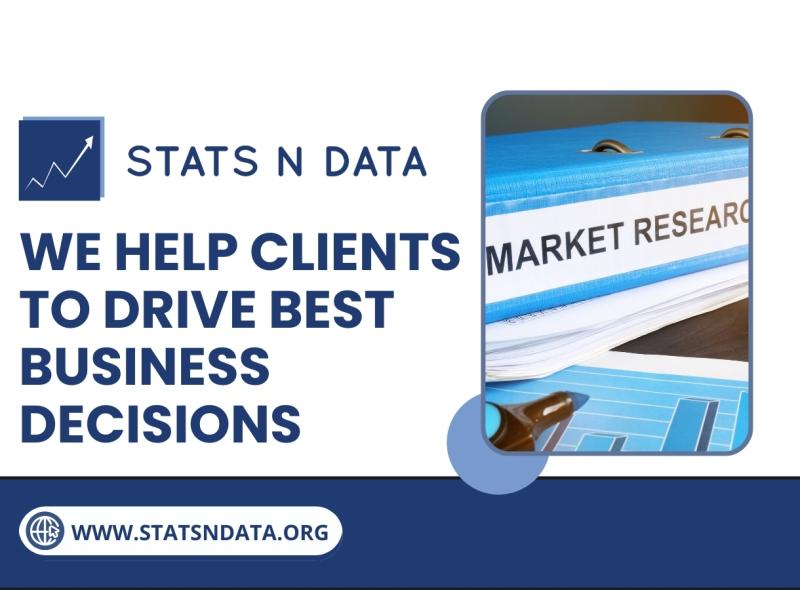
Nitro-Infused Tea Market Sees 11.20% Surge with Starbucks, Rise Brewing, Novus T …
The Nitro-Infused Tea market is experiencing a notable surge in popularity, driven by the growing consumer demand for innovative beverage options that deliver unique taste experiences and enhanced refreshment. Nitro-infused teas, which involve infusing traditional tea with nitrogen to create a creamy texture and frothy head, are becoming increasingly appealing to health-conscious consumers. This innovative approach not only enhances the flavor profile of tea but also provides a refreshing alternative…
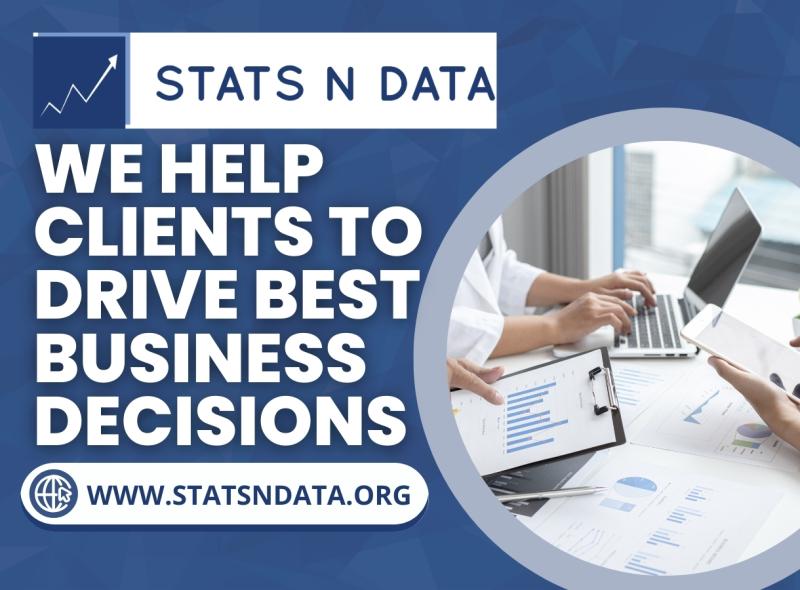
Ultra-thin Flexible PCB Market 11.20% CAGR Growth with Rocket PCB Compass Techno …
The ultra-thin flexible printed circuit board (PCB) market is experiencing significant growth, driven by advancements in technology and increasing demand across various industries. These ultra-thin flexible PCBs offer substantial advantages, including lightweight design, high flexibility, and improved space efficiency, making them ideal for applications in consumer electronics, healthcare devices, automotive systems, and wearable technology. As manufacturers strive for miniaturization and enhanced performance, the adoption of ultra-thin flexible PCBs is expected…
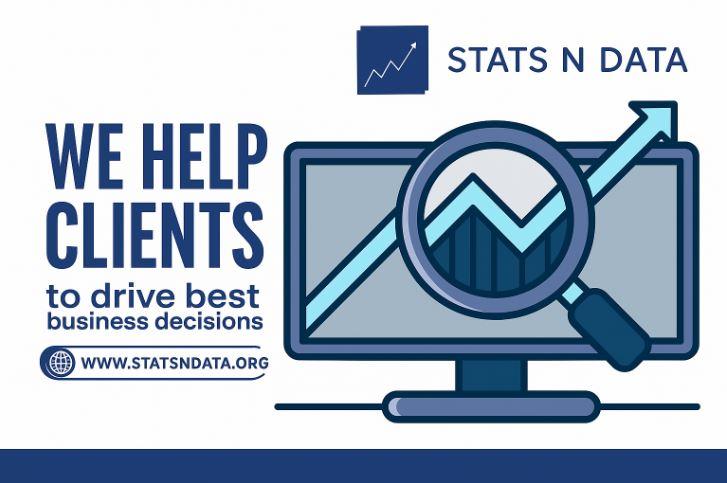
Lipidomics Services Market 11.20% CAGR Growth with BGI Genomics Lipotype Metabol …
The lipidomics services market is experiencing significant growth, driven by advancements in analytical techniques and an increasing understanding of the role of lipids in various biological processes. Lipidomics, the comprehensive study of lipids within biological systems, is becoming increasingly important in fields such as drug development, disease diagnosis, and personalized medicine. As researchers continue to uncover the complexities of lipid metabolism and its implications for health and disease, the demand…
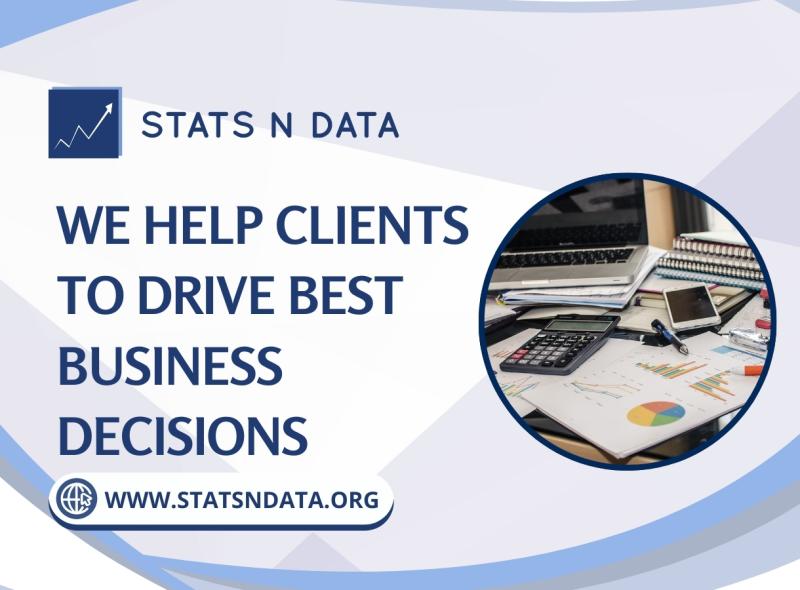
Durable Polyimide Aerogel Market 11.20% CAGR Growth with Blueshift Materials Jia …
The durable polyimide aerogel market is poised for significant growth, driven by the increasing demand for lightweight and high-performance materials across various industries. As a highly efficient thermal insulator, polyimide aerogel is gaining traction in sectors such as aerospace, automotive, electronics, and construction. Its unique properties, including low thermal conductivity, high thermal stability, and excellent mechanical strength, make it an ideal choice for applications where weight reduction and thermal management…
More Releases for Sales
Sales Council Recognises Twib as 'Best Sales Tracking App' for Revolutionary Fie …
Mumbai - August 18, 2025 - Twib [https://twib.online/], a leading sales tracking application, has been recognised with the prestigious 'Best Sales Tracking App' title by the Sales Council, acknowledging its groundbreaking contribution to revolutionizing field sales management across diverse markets. This coveted recognition positions Twib as the premier choice for businesses seeking comprehensive sales tracking solutions in today's rapidly evolving digital marketplace.
Industry Recognition Validates Innovation Leadership
The Sales Council's recognition underscores…
Global Satellite Market 2019 Sales Volume, Sales Price, Sales Revenue Analysis a …
Global Satellite Market report explores manufacturer’s competitive scenario and provides market share for all major players of this market based on production capacity, sales, revenue, geographical presence and other major factors. The report also covers import/export data across all major regions covered in this report
This report studies the global Satellite market status and forecast, categorizes the global Satellite market size (value & volume) by manufacturers, type, application, and region. This…
Biochips Market Sales Volume, Sales Price, Sales Revenue Analysis
The global biochips market was valued at US$ 7,026.4 million in 2016 and is expected to witness a robust CAGR of 16.2% over the forecast period (2017 – 2025).
Biochips are miniaturized laboratories, which can perform simultaneous biochemical reactions. On the basis of functionality, biochips are classified as DNA chips, protein chips, lab-on-a-chips, and tissue and cell arrays. DNA chips, biochips or DNA microarrays consists of a microscope slide made of…
Shock Wave Therapy Devices Market Sales Volume, Sales Price, Sales Revenue Analy …
Shock wave therapy also called extracorporeal shock wave therapy (ESWT) is a non-invasive treatment that is used in wide areas of medical field that includes physical therapy, orthopedics, cardiology, and urology. Shock wave therapy is an alternative treatment for orthopedic surgeries. The term extracorporeal signifies the external shock generation, and the resultant shock waves are then transmitted to the internal parts of the body via intermediate pads through the skin.…
Insulin Pumps Market Sales Volume, Sales Price, Sales Revenue Analysis
Insulin pump is a portable device attached to the body that continuously delivers preset amounts of short or rapid acting insulin in the body to control diabetes. Insulin therapy is required in type 1 diabetes and sometime in type 2 diabetes. It serves as an effective alternative to insulin injections. Furthermore, insulin pump delivers the insulin according to the need of body as basal rate, where small amount of insulin…
Global Small Beer Market 2018 Sales Volume, Sales Price, Sales Revenue Analysis …
Small Beer Research Report covers the Major Key Players data analysis that includes market revenue, gross rate, profit, and distribution market etc., a competitive analysis that will help to know more about market competitors. This research report covers all the major regions and countries worldwide, that will help to know about regional growth rate (revenue) status, includes market size, the future forecast for next 5 years.
The Small Beer market was…
